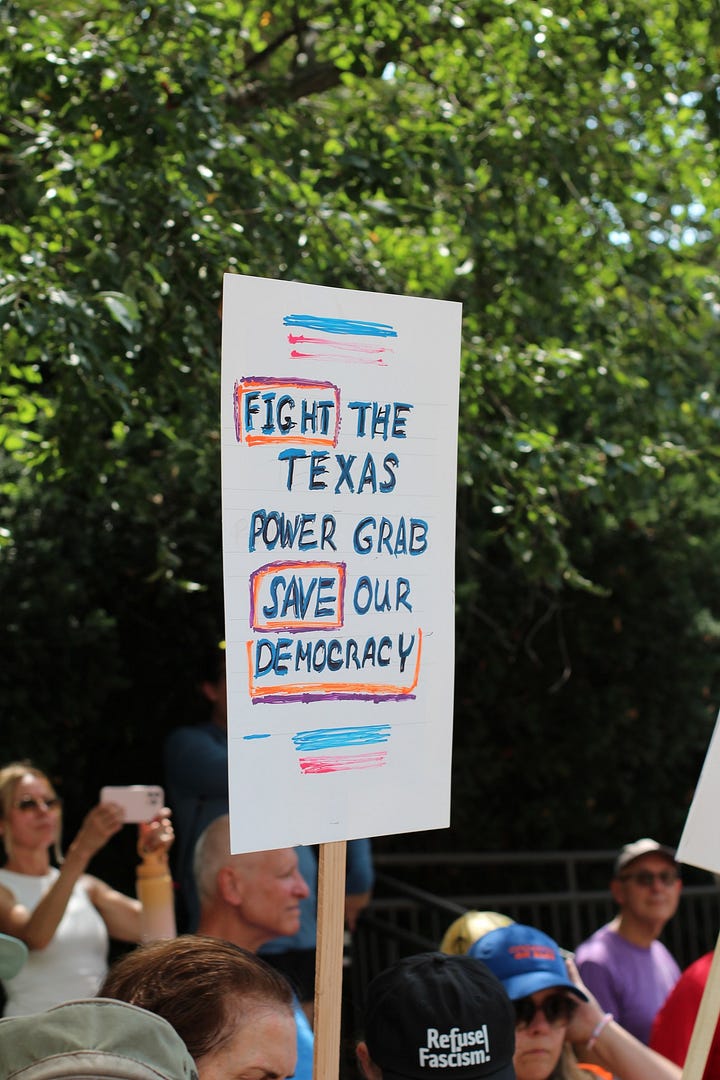Texas Democrats Return, Paving the Way for Rapid Republican Approval of New Congressional Maps
Two-Week Walkout Ends as Legislature Convenes to Shift Five Seats to GOP Ahead of 2026


Texas Democratic lawmakers ended their unprecedented two-week exodus Monday, returning to the state Capitol and allowing Republicans to move forward with a controversial redistricting plan that could deliver five additional congressional seats to the GOP ahead of the 2026 midterm elections. The dramatic conclusion of one of the longest legislative standoffs in Texas history came after Democrats successfully delayed the redistricting vote during the first special session and triggered a nationwide political battle over congressional boundaries, according to The New York Times.
More than 50 Democratic representatives who fled to Illinois and other blue states on August 3 announced their coordinated return as the Texas House prepared to establish a quorum for the first time in over two weeks. The walkout had effectively paralyzed the legislature and denied Republicans the 100 members needed to conduct business in the 150-member chamber.
Strategic Victory Claims Despite Legislative Defeat
House Democratic Caucus Chair Gene Wu framed the return as a strategic victory despite the inevitable passage of the GOP redistricting map. "We broke quorum to defeat Abbott's corrupt special session, withstood unprecedented harassment and intimidation, and rallied Democrats nationwide to join this existential fight for fair representation—changing the entire playing field for 2026," Wu stated in announcing the Democrats' return.
The Democratic strategy focused on two primary objectives: preventing a vote during the initial special session that expired Friday, and encouraging Democratic-controlled states to launch retaliatory redistricting efforts. Both goals were achieved, with California leading a counter-offensive that Democrats hope will neutralize Republican gains.
"Our return makes us a bigger threat to the Republican agenda than we were before" — Rep. Gene Wu, Texas House Democratic Caucus Chair
Wu emphasized that returning lawmakers would now be positioned to establish legal challenges to the new maps while building grassroots opposition across Texas and nationally. The Democrats face the reality that they lack the votes to prevent passage, but can influence the timing and political context surrounding the redistricting effort.
National Redistricting Arms Race Intensifies
The Texas battle has triggered an unprecedented interstate conflict over congressional boundaries, breaking decades of precedent that limited major redistricting to once per decade following the census. California Governor Gavin Newsom announced Thursday his redistricting proposal designed to create five new Democratic seats, directly countering the Republican gains expected in Texas.
The California legislature convened Monday to begin consideration of Newsom's plan, which would go before voters in a November special election. The timing represents a coordinated Democratic response to what party leaders characterize as an existential threat to congressional representation and democratic norms.
According to The New York Times, the interstate redistricting conflict represents "an unprecedented political battle between red and blue states" that could fundamentally alter how congressional districts are drawn nationwide. Republican leaders in Florida, Indiana, Missouri, and Ohio have also indicated interest in pursuing their redistricting efforts in response to Democratic retaliation.
Trump's Direct Role Drives Republican Urgency
The Texas redistricting effort stems directly from President Donald Trump's explicit demands for additional Republican representation to help maintain GOP control of the House through the 2026 midterms. Trump has repeatedly stated that Republicans are "entitled to five more seats" through redistricting, providing direct presidential backing for the controversial mid-decade map changes.
The proposed congressional map would increase Republican control from the current 25-13 advantage to potentially 30-8, giving Trump-backed candidates victories in districts he would have won by at least 60% in 2024. According to election analyst Dave Wasserman, the new boundaries could create 30 Republican-leaning districts compared to just eight favoring Democrats.
Governor Greg Abbott called the second special session immediately after the first expired on Friday, maintaining momentum for the redistricting effort despite the Democratic delay tactics. "We will not back down from this fight," Abbott declared. "I will continue to use all necessary tools to ensure Texas delivers results for Texans".
High-Stakes Political and Financial Costs
The extended legislative standoff imposed significant costs on both parties and Texas taxpayers. Democratic lawmakers faced daily $500 fines that could not be paid with campaign funds, civil arrest warrants, and mounting pressure from constituent services during their two-week absence.
The crisis cost Texas taxpayers over $1.5 million according to legislative estimates, with each special session day generating approximately $52,000 in direct expenses plus mounting law enforcement overtime costs. House Speaker Dustin Burrows indicated that absent Democrats would be responsible for reimbursing law enforcement costs, which have reached "well over six figures in just overtime".
Despite the financial and political pressures, Democrats maintained unity throughout their exodus, with fundraising efforts establishing support networks to sustain their resistance. The walkout represented the most extended sustained quorum break in modern Texas political history.
Legal Challenges and Constitutional Questions
Even with the expected passage of new congressional maps, the redistricting battle is far from concluded. Civil rights organizations and Democratic groups have prepared extensive legal challenges that could delay implementation and potentially force court-drawn districts for the 2026 elections.
The proposed maps face scrutiny under the Voting Rights Act, with critics arguing that the boundaries illegally disenfranchise Black and Hispanic voters. During public hearings, Republicans openly acknowledged that their objectives were partisan, while Democrats contended that the redistricting violates federal voting rights protections.
Wu emphasized that returning to Austin would enable Democrats to establish stronger legal foundations for challenging the maps in court. "Our return allows us to build the legal framework necessary to challenge this discriminatory map in court," he stated, signaling a shift from legislative resistance to judicial strategy.


